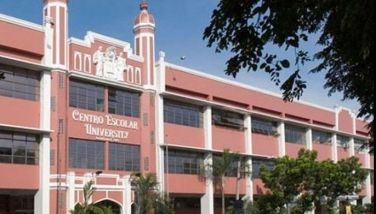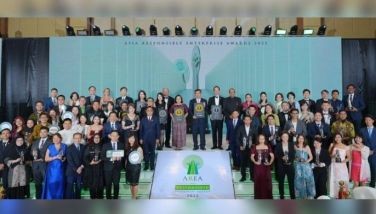The final push: Education for all beyond 2015
BANGKOK – Before the United Nations’ Millennium Development Goals 2000-2015 concludes next year, UNESCO has started a series of regional evaluation at the Asia Pacific Regional Education Conference (APREC) held last Aug. 6 to 8 in Bangkok, Thailand. The first in a series of UNESCO regional education conferences to take place around the world, the Asia Pacific region represents the largest population of the world, followed by Africa and Latin America, where underdeveloped countries are situated.
The worldwide movement of Education for All initiated in Jomtien, Thailand in 1990 and was reaffirmed in Dakar, Africa in 2000, where findings revealed that although enrollment increased, education was substandard.
Being the most important commitment to education in recent decades, efforts since the turn of the millennium have yielded significant progress.
Yet the Education for All (EFA) agenda and the education-related Millennium Development Goals (MDG) are unlikely to be achieved by 2015.
There is therefore consensus on the need for a new and forward-looking education agenda that completes the unfinished business. Thus it was declared the Decade of Education for Sustainable Development (ESD) 2005-2014.
To meet the ESD challenges, UNESCO Director General Koichiro Matsuura approved the UNESCO Philippines proposal to be the Southeast Asia Center for Lifelong Learning for Sustainable Development (SEA-CLLSD) in 2010 as Category 2.
Before then, I, as UNESCO secretary general, and my commissioners spent five years undertaking visits and consultations with the nine other ASEAN countries so they could send teacher-trainees to acquire the ESD-ECCE formation course in the center to sustain the concept of “global citizenship.”
Global consultation with governments, civil society, the private sector and youth have identified education as a central priority for the post-2015 development agenda. Education must therefore be placed at the heart of the global development agenda.
The EFA Steering Committee, a representative body of key international education stakeholders convened by UNESCO, has developed a comprehensive new vision for education beyond 2015.
Therefore, the 2014 Global EFA meeting, organized by UNESCO in Oman, Muscat last May, led to the recent ministerial consultation of the Asia Pacific Regional Conference of Bangkok.
At the sixth meeting of UNESCO’S Collective Consultation of NGOs on Education for All (CCNGO/EFA), non-governmental organizations (NGOs) considered the bottlenecks which have hampered ESD-EFA agenda, stating: “We deplore the negative impact on education of the global financial and economic crisis and interruption of educational opportunities caused by the climate crisis. We deeply regret that for the first time since 1997, there has been a decrease in international aid to education. As a result, in 2010, there were 250 million children with four years’ schooling remaining without basic literacy and numeracy. There were still 775 million adults lacking literacy skills, of whom 64 percent were women. 200 million 15-24-year-olds have not completed primary school, including 71 million adolescents who lack access to lower secondary education. More than 620 million young people are neither working nor studying.”
The proposed overarching education goal is translated into seven proposed global education targets with emphasis on gender equity and the most marginalized.
Target 1 – By 2030, at least x% (percentage to be decided in May 2015 at the MDG conference in Incheon, South Korea) of girls and boys are ready for primary school through participation in quality early childhood care and education, including at least one year of free and compulsory pre-primary education.
Target 2 – By 2030, all girls and boys will complete free and compulsory quality basic education of at least nine years and achieve relevant learning outcomes.
Target 3 – By 2030, all youth and at least x% of adults reach a proficiency level in literacy and numeracy sufficient to fully participate in society, with particular attention to girls and women and the most marginalized.
Target 4 – By 2030, at least x% of youth and y% of adults have the knowledge and skills for decent work and life through technical and vocational, upper secondary and tertiary education and training.
Target 5 – By 2030, all learners acquire knowledge, skills, values and attitudes to establish global citizenship education and education for sustainable development.
Target 6 – By 2030, all governments ensure that all learners are taught by qualified, professionally trained, motivated and well supported teachers.
Target 7 – By 2030, all countries allocate at least 4-6 percent of their Gross Domestic Product (GDP) or at least 15-20 percent of their public expenditure to education, prioritizing groups most in need; and strengthen financial cooperation for education, prioritizing countries most in need.
The strengthening and alignment of these targets will be taken into account at the UNESCO World Conference on Education for Sustainable Development to be held in Aichi, Nagoya on Nov. 10 to 12.
- Latest
- Trending



































